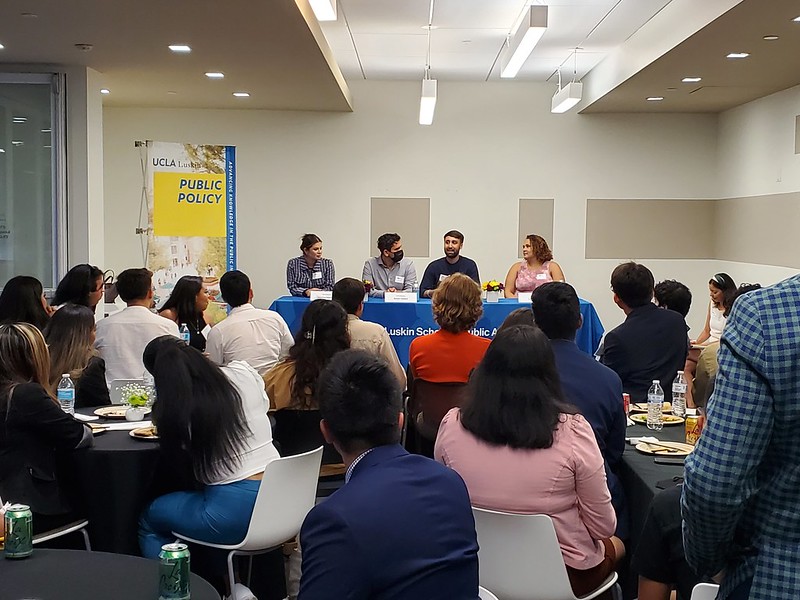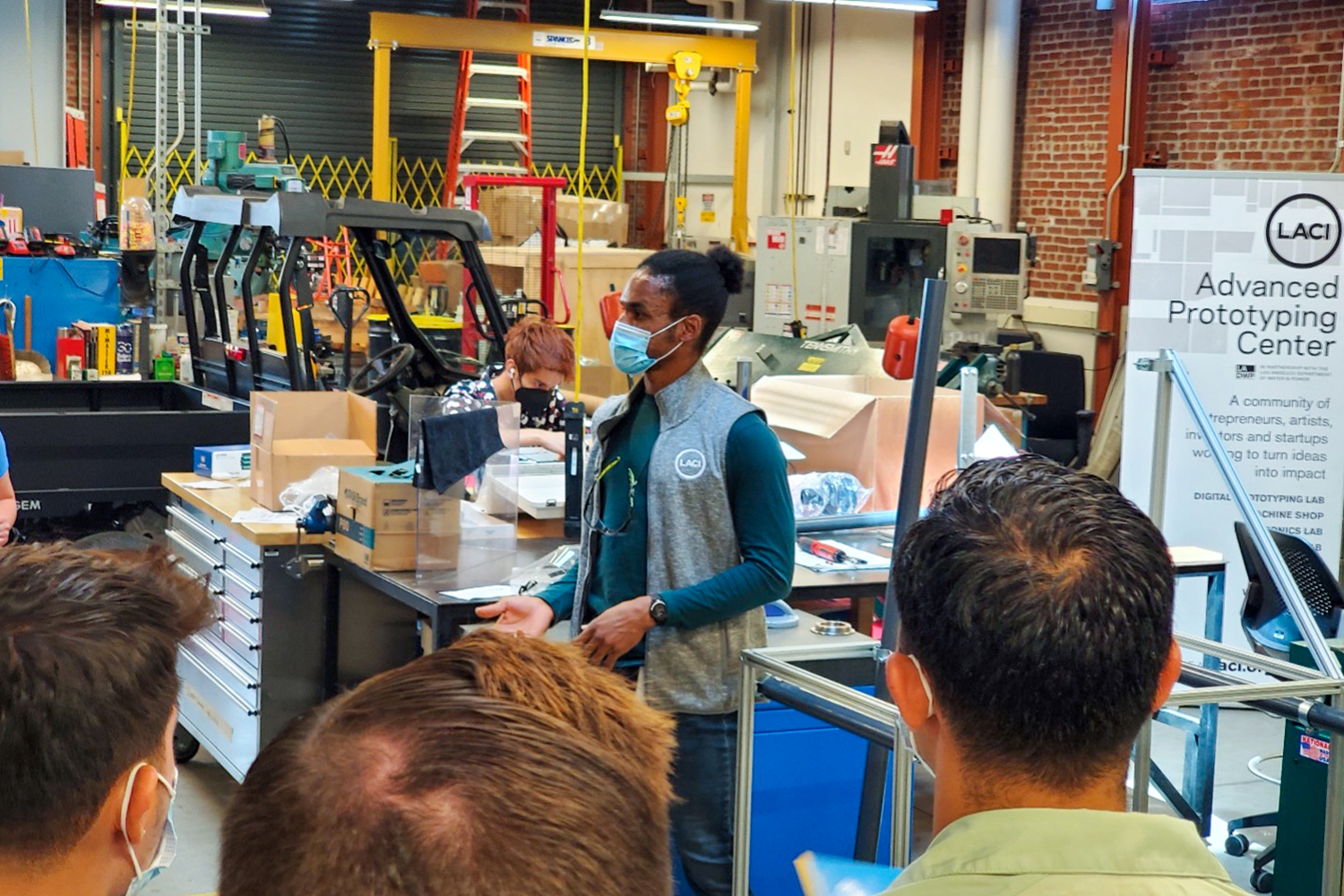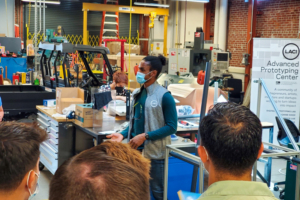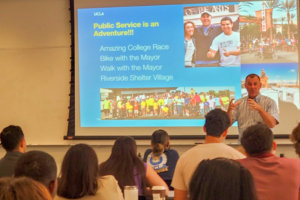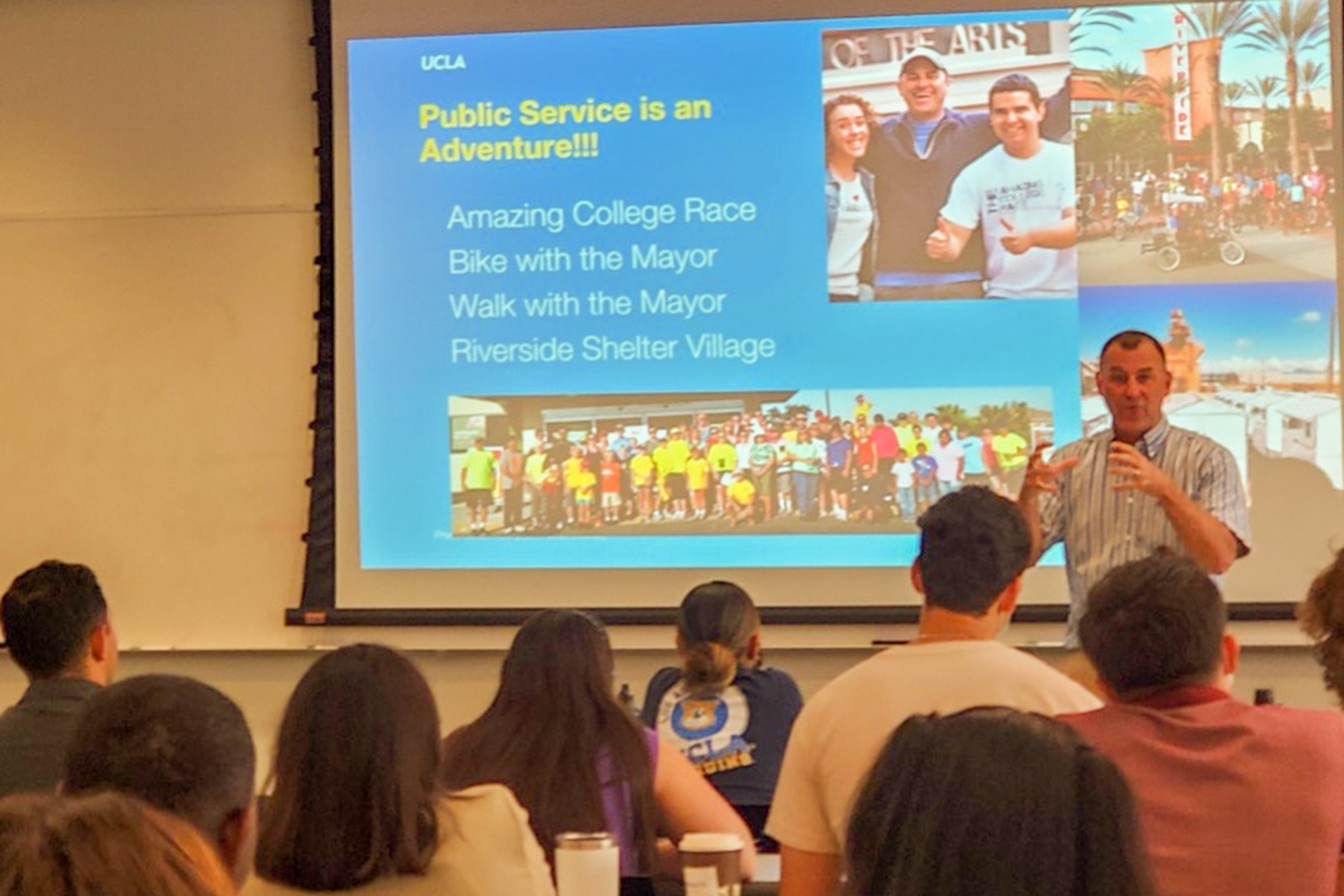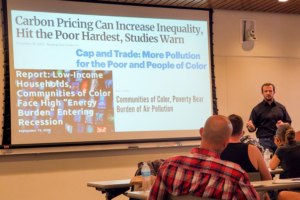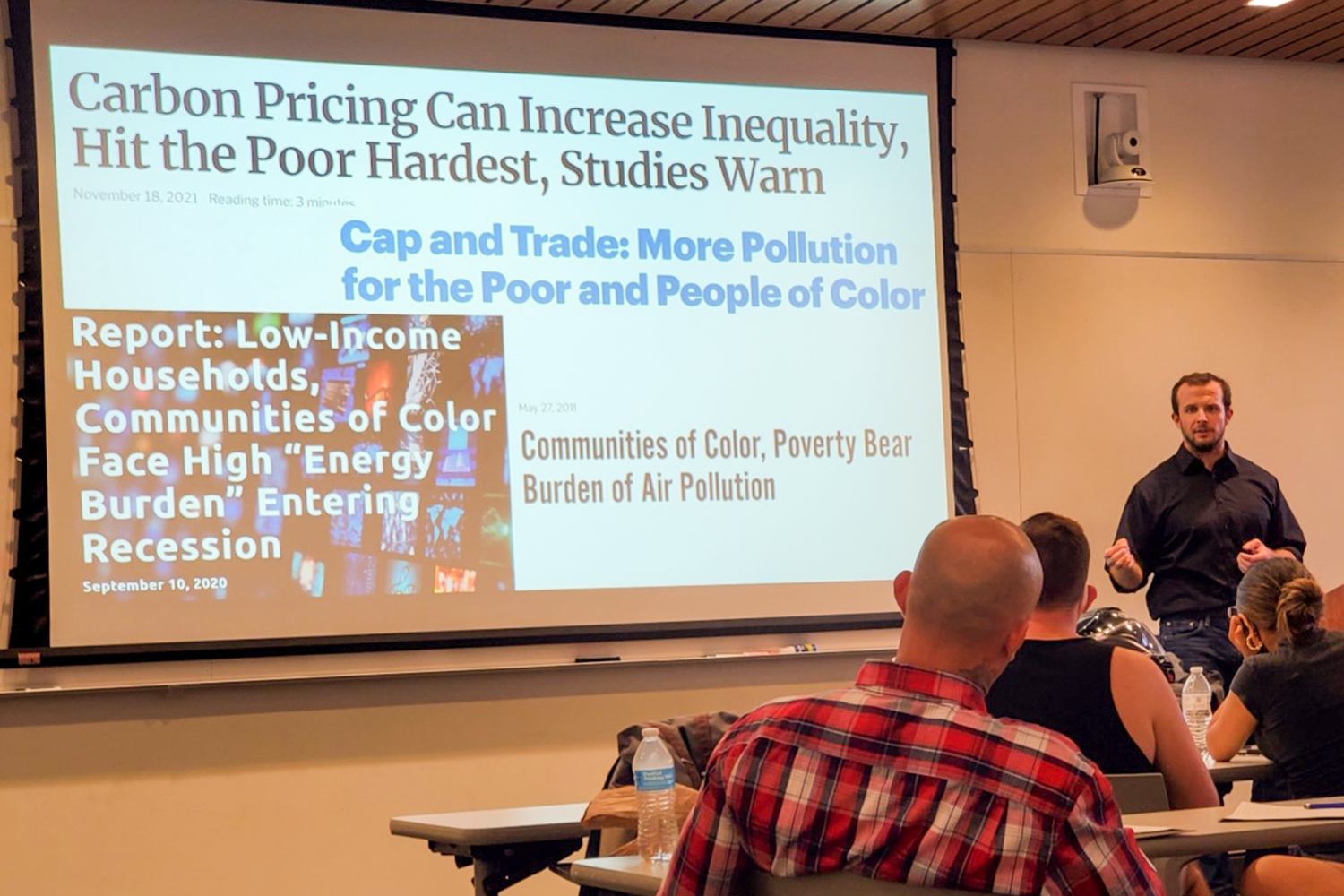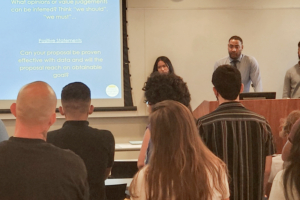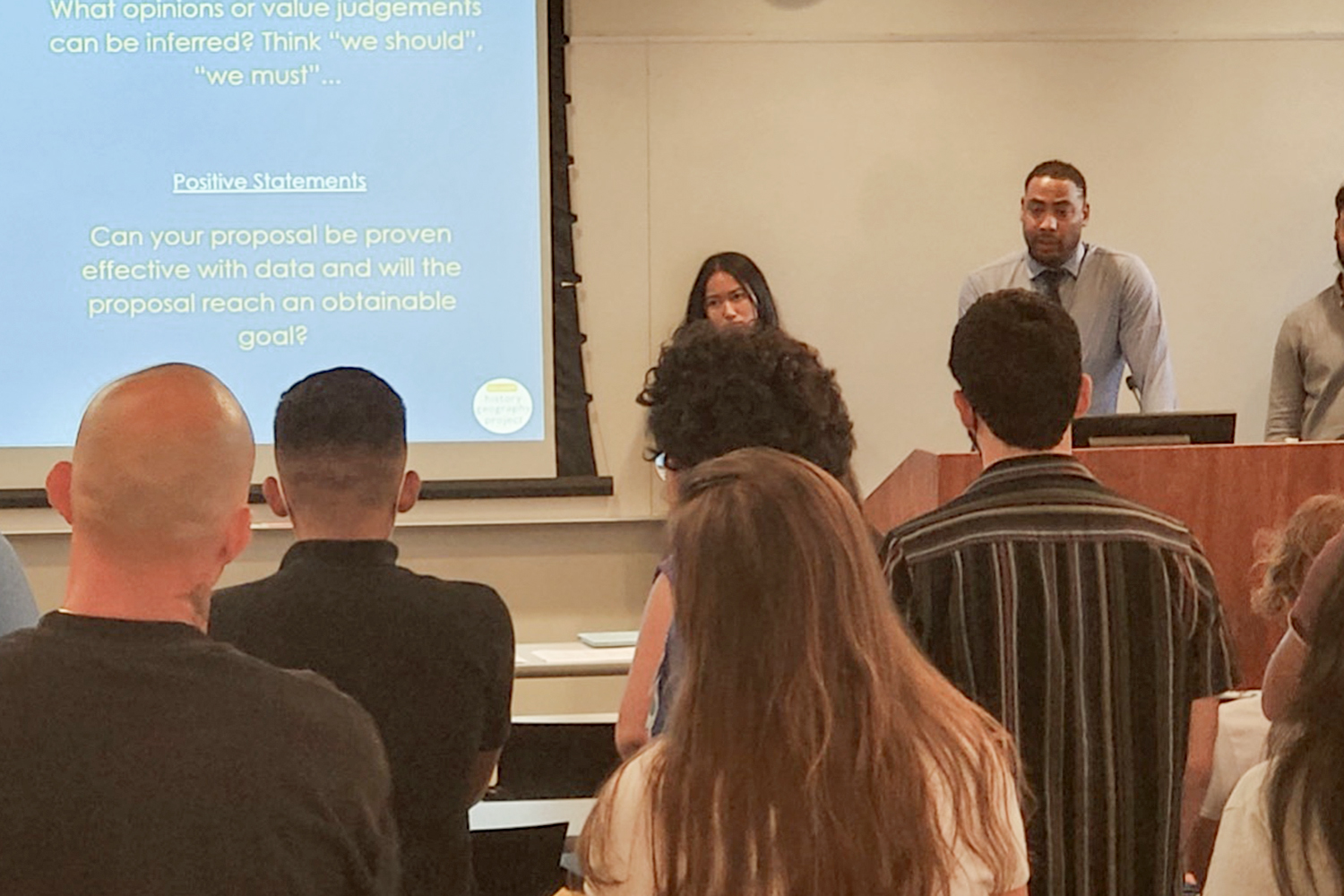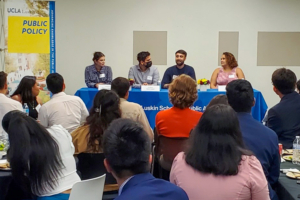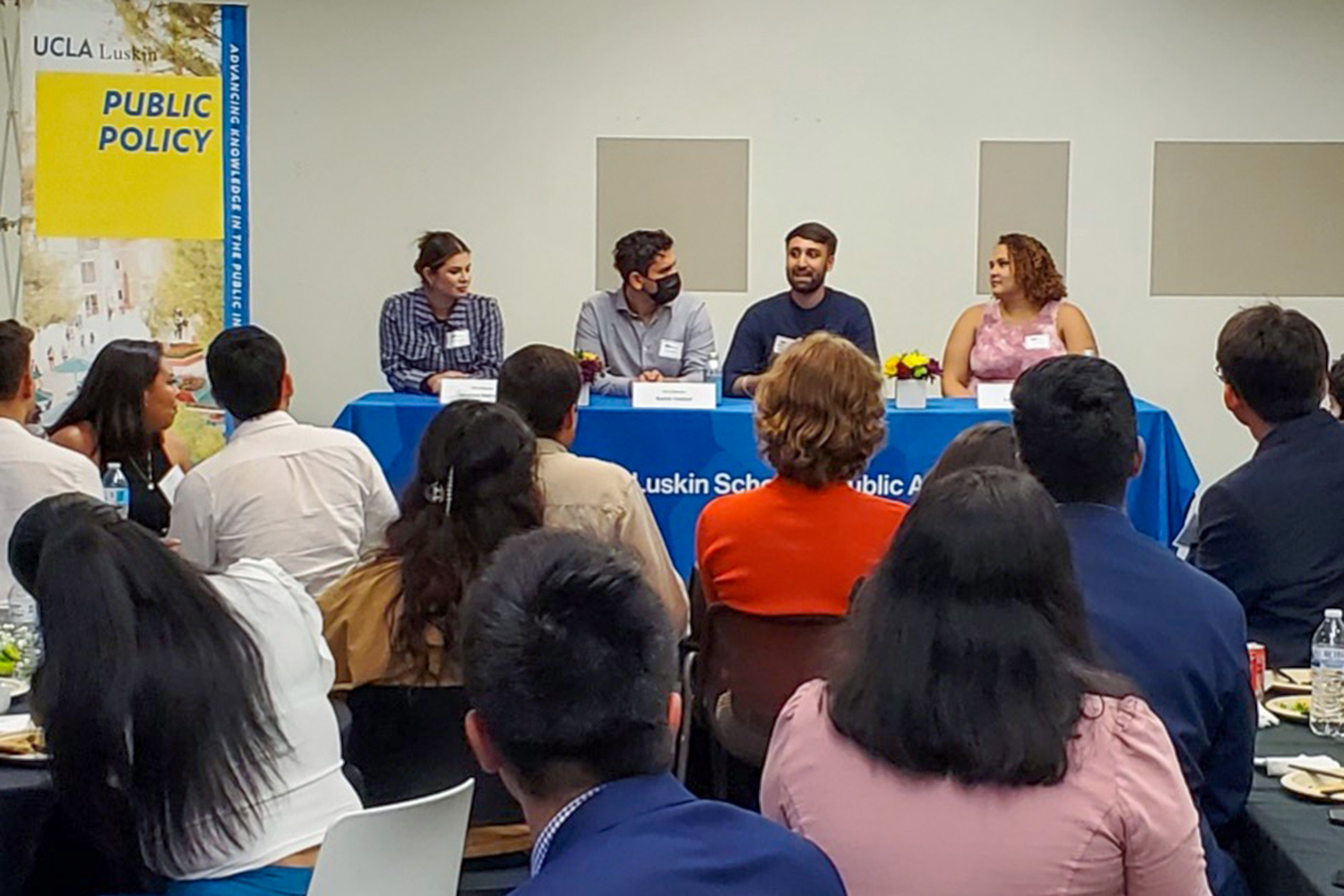Twenty-nine undergraduates from across the nation came to UCLA in mid-August for three days of study and discussion as UCLA Luskin Public Policy returned to in-person programming for its third Public Service Weekend.
“Harness the Power of Action-Oriented Public Service” provided aspiring public servants an in-depth look at a diverse array of career opportunities, policy developments, and social issues such as environmental justice, inequality, homelessness and immigration reform.
The program, which was produced in cooperation with the not-for-profit Public Policy and International Affairs (PPIA) organization, included a tour of a Los Angeles clean technology site and workshops conducted by UCLA faculty, alumni and staff.
“Additionally, we aimed to inspire students by sharing the life stories and successes of UCLA graduate students, alumni, policymakers and faculty doing the work on the front lines of advocating for policy reform and social change,” said Kenya Covington, a senior lecturer at UCLA Luskin who coordinated the program.
Speakers included Dean Gary Segura, as well as alumni William “Rusty” Bailey, the former mayor of Riverside, and Dan Coffee, a project manager for the UCLA Luskin Center for Innovation. Second-year MPP student Elliot Woods, chair of the School’s Black Student Caucus, shared educational and personal insights. He said experiences with the foster care system early in life have sharpened his determination to improve society through a career in public service.
A site tour of the La Kretz Innovation Campus exposed participants to creative clean technology ideas seeking to decrease the emissions that cause climate change. Participants learned about pilot projects involving lithium battery recycling, for example, and they witnessed how welding workspaces, 3D printing technology and chemistry labs can all play a role in developing green technology solutions.
The student participants were challenged by Covington to identify pressing societal problems, and faculty and staff facilitated learning exercises that helped them to define values that have been violated and the scale of problems to be addressed. The students wrapped up the Public Service Weekend with mock professional presentations that focused on potential solutions.
“The presentations were impressive,” Covington said. “Future social change depends largely on the development of leaders capable of taking on the most pressing social problems that we face in the world. With partners like PPIA, the Luskin School is doing just that.”
View photos on Flickr:
